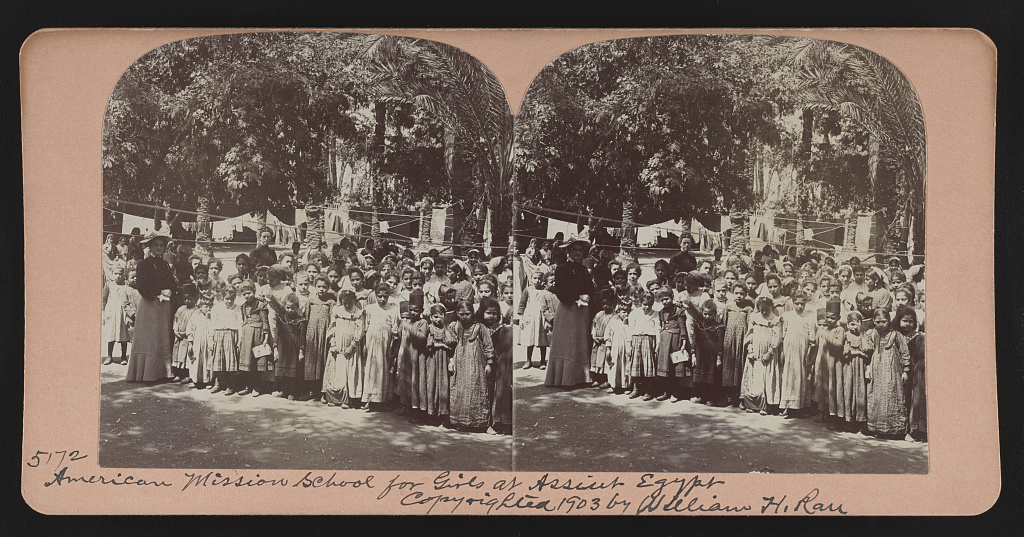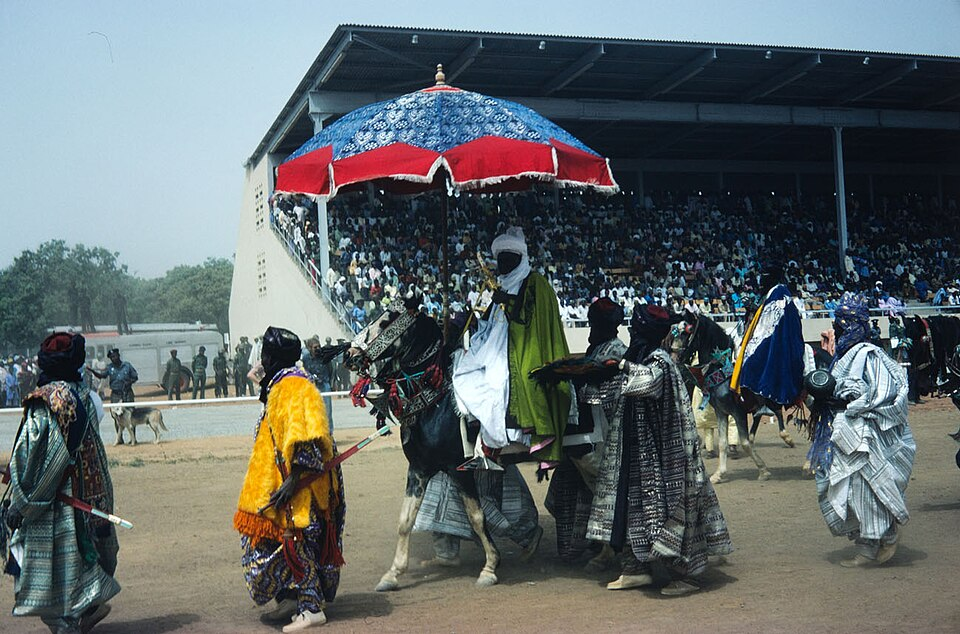IB Syllabus focus:
'Analyze the changes in social and cultural values in Africa during the 19ᵗʰ and 20ᵗʰ centuries, including the impact of colonialism.'
Introduction to Social and Cultural Change
The 19th and 20th centuries were transformative periods for Africa, characterised by significant shifts in social and cultural values predominantly influenced by the tide of colonialism and the responses it elicited from African societies.
Pre-Colonial Social Structures and Values
Before the advent of colonialism, African societies were marked by their diversity, with intricate social and cultural systems.
Kinship and Community: Kin-based societies prevailed, with strong emphasis on lineage and clan affiliations.
Traditional Beliefs: Animism and ancestor worship were prevalent, with traditional rituals underpinning social life.
Gender Roles: These were distinct but complementary, with women often playing crucial roles in agriculture, family, and religious life.
Disruption through Colonialism
With the arrival of European powers, African social structures encountered unprecedented disruptions.
Imposed Hierarchies: European colonialists often imposed hierarchical structures alien to African societies, sometimes co-opting local leaders into these new systems.
Legal Systems: European laws supplanted traditional legal practices, eroding indigenous dispute resolution mechanisms and further entrenching colonial control.
Transformation of Cultural Values
Colonial influence ushered in a new set of cultural values, often in stark contrast to indigenous practices.
Educational Impact: Missionary and colonial schools taught European history and languages, marginalising indigenous education and knowledge systems.
Religious Changes: The spread of Christianity and Islam often led to syncretism or the erosion of traditional beliefs, with missionary activities taking a central role.
Adaptation and Resistance
African communities displayed resilience, adapting to or resisting the colonial cultural imposition.
Cultural Adaptation: Some African societies blended European and African practices, creating new social norms.
Forms of Resistance: Secret societies and cultural movements emerged, preserving traditional practices and resisting colonial rule.
Urbanisation and Cultural Exchange
The growth of urban centres became a melting pot for cultural exchange and transformation.
Creation of a New Urban Identity: Migrants to cities often developed new identities, mixing different ethnic backgrounds and traditions.
Class Dynamics: Urbanisation saw the emergence of a new class of educated Africans, who became pivotal in cultural and political movements.
The Role of African Intellectuals
Intellectuals played a pivotal role in articulating a modern African identity that was independent of colonial influence.
Cultural Reclamation: Intellectuals and artists sought to reclaim African history and heritage, promoting pride in African achievements.
Nationalist Movements: African intellectuals were at the forefront of nationalist movements, utilising cultural unity as a tool for political mobilisation.
Colonialism and Gender Roles
Colonial economic systems redefined gender roles, often to the disadvantage of women.
Economic Marginalisation: As men were absorbed into the cash economy, women's traditional roles were often devalued.
Christian and Islamic Influence: The spread of these religions introduced new gender dynamics, sometimes reinforcing patriarchal structures.
Influence of Missionary Education
Missionary education had a complex impact on African societies.

Girls at the American Mission School in Asyut (Upper Egypt), c. early 20th century. The scene exemplifies how missionary education promoted literacy and European curricular models while subtly recasting local languages, customs, and gender roles. Although North African, it reflects continent-wide patterns of schooling under mission and colonial influence. Source
Introduction of Literacy: While European education promoted literacy, it also often sought to eradicate local languages and literacies.
Educational Disparity: Missionary education was often biased towards boys, contributing to gender disparities in education.
Cultural Resilience and Syncretism
In the face of colonial pressures, African cultures showed remarkable resilience.
Cultural Blending: New forms of music, art, and religion emerged, reflecting a blend of African and European influences.
Preservation of Traditions: Many communities continued to practice traditional customs clandestinely or in tandem with European customs.
The Emergence of Nationalism
The late 20th century witnessed the rise of nationalist ideologies that celebrated African cultures.
Rejection of Colonialism: Nationalism was often predicated on the rejection of colonial cultural imperialism.
Cultural Revival: Nationalist movements sometimes involved the deliberate revival of pre-colonial art, language, and cultural practices.
Post-Colonial Cultural Revival
Post-independence periods were marked by efforts to institutionalise African cultural practices.
Language and Education: There was a drive to promote African languages in education and public life.
Art and Culture: Governments and institutions sought to foster and preserve distinctly African forms of art and culture.
Media and Cultural Expression
Modern media became a significant platform for cultural expression and the promotion of African values.
Broadcasting Cultural Identity: Radio and television played pivotal roles in disseminating African music and stories, reinforcing cultural identities.
Film and Literature: African cinema and literature gained prominence, showcasing the continent's storytelling traditions and contemporary issues.
Cultural Movements and Pan-Africanism
The 20th century also saw the rise of movements that promoted African unity and cultural solidarity.
Festivals and Conferences: Cultural festivals and conferences celebrated African arts and music, promoting a sense of unity.

FESTAC ’77 Grand Durbar, a ceremonial procession staged during the World Black and African Festival of Arts and Culture (Lagos/Kaduna, January–February 1977). The festival gathered artists, writers, and performers from across Africa and the diaspora, asserting cultural pride and continental solidarity in the post-colonial era. Source
Continental and Global Influence: African cultural output began to influence global arts, contributing to a worldwide appreciation of African aesthetics and narratives.
In studying these transformations, one witnesses the resilience of African societies and their ability to navigate, negotiate, and sometimes subvert the cultural impositions of colonial powers. The result was not a wholesale replacement of African cultures but rather a complex tapestry of old and new, traditional and modern, indigenous and foreign. This rich cultural mélange has defined the African continent's social and cultural evolution during the 19th and 20th centuries and continues to influence its trajectory in the contemporary era.
FAQ
Music and art played pivotal roles in the resistance against colonial rule. They were vital expressions of cultural identity and instruments of political mobilisation. Music became a means of preserving indigenous languages and stories, which resisted the cultural domination of the colonisers. It also provided a platform for indirect critique of colonial authorities, as musicians used allegory and metaphor to avoid censorship. In the realm of visual arts, paintings and sculptures celebrated African history and achievements, which fostered a sense of pride and cultural unity that was essential for resistance movements. Artistic expression thus became intertwined with the fight for independence and self-determination.
The colonial experience deeply shaped post-colonial politics and society in Africa through the structures and systems left behind by the colonisers. Colonial borders, often drawn without regard for ethnic or cultural divisions, created a legacy of diverse and sometimes conflicting groups within the new nations, leading to political tensions and challenges to state-building efforts. The adoption of European languages as official languages had lasting effects on communication and administration. Colonial economic systems also had a significant impact, as they had integrated African economies into the global market in a subservient role, leading to continued economic challenges post-independence. Furthermore, the ideologies of liberation and the structures of resistance movements often translated into the political ideologies and parties of the post-colonial period.
African Independent Churches (AICs) reflected significant shifts in social and cultural values as they emerged as part of a broader move towards self-assertion in the face of colonialism. They represented a rejection of the European-controlled missionary churches, which were seen as complicit in the colonial enterprise. AICs often combined Christian beliefs with African traditions, fostering a religious identity that was distinctly African. This syncretism enabled African societies to maintain a spiritual continuity while adapting to the new religious landscape. Additionally, AICs were often involved in social welfare, education, and the promotion of African leadership, reflecting and encouraging a move towards greater self-reliance and empowerment.
Changes in women's roles during the colonial period continued to influence African societies in the late 20th century in several ways. The colonial cash economy and the introduction of formal education began a process that both challenged and reinforced traditional gender roles. On one hand, women gained new opportunities through education and urbanisation, slowly entering professions previously closed to them. On the other hand, the colonial economy often marginalised women's roles and economic contributions, leading to a struggle for rights and recognition that continued well into the late 20th century. This struggle helped to spur the development of women's movements and a re-evaluation of women's roles in post-colonial African societies, influencing policy, legislation, and societal norms regarding gender equality.
The spread of Islam in the 19th century had a considerable influence on the social structures of African societies. It brought new legal and educational systems that contrasted with indigenous practices. Islamic law (Sharia) introduced a different set of moral and legal codes, which were adopted in varying degrees across different regions, leading to changes in social behaviour and norms. The establishment of madrasas (Islamic schools) provided alternative forms of education, promoting literacy and learning in Arabic, which impacted local languages and educational traditions. Moreover, the tenets of Islam emphasised community cohesion and charity (Zakat), which started to redefine communal obligations and social welfare.
Practice Questions
Colonial education systems had a profound impact on African societies. They introduced Western curricula, which often denigrated indigenous knowledge and languages, leading to a decline in traditional educational practices. However, this same education also equipped a new generation of Africans with the tools to question and ultimately challenge colonial rule. Educated Africans used their newfound knowledge to articulate a vision for independence and to foster a sense of national identity. Thus, while colonial education disrupted African social and cultural values, it inadvertently sowed the seeds for emancipation and the reassertion of African cultures.
Urbanisation dramatically altered cultural identities in African societies. The move to urban centres facilitated the blending of different ethnic traditions, leading to hybrid cultural practices. For instance, urban areas often became hotbeds of cultural innovation, where new forms of music, like Highlife and Afrobeat, emerged. Yet, the concentration of diverse groups in cities also prompted a resurgence of ethnic identity as individuals sought to maintain their distinct cultures within the melting pot. Hence, urbanisation both homogenised and diversified African cultural identities, depending on the local context and the nature of urban growth.

